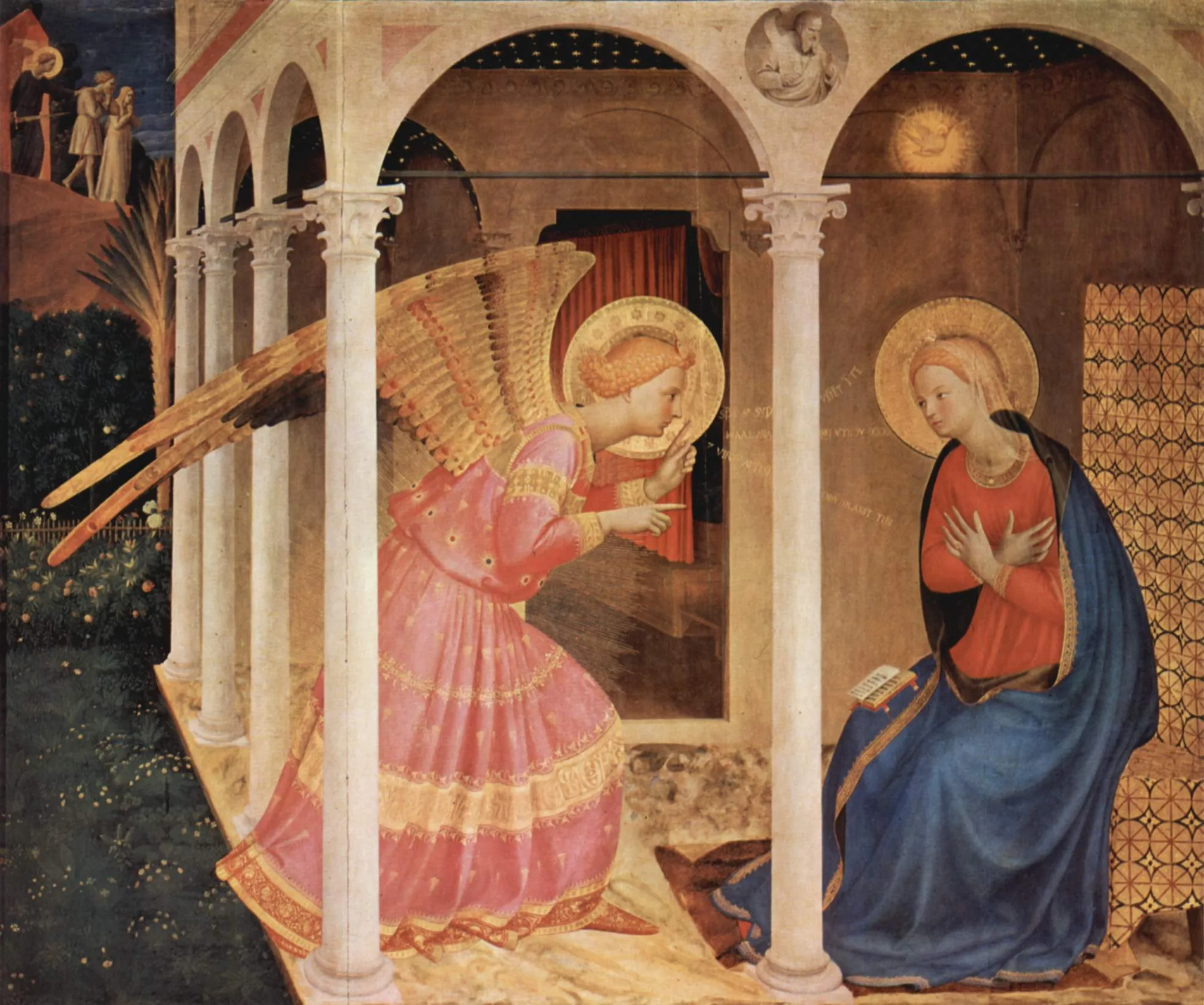Angelic creation has long been a source of intrigue and debate among those seeking answers about the supernatural realm. If you’re curious about when God created the angels and how they fit into the divine plan, this post is for you. This write-up explores various theological ideas and perspectives, offering insight into the role of these celestial beings. Keep reading to gain a deeper understanding of angelic creation.
The Concept of Angels in Theology
When we talk about angels, we are talking about heavenly creatures that have captivated our imaginations for centuries. In theology, angels are divine beings that are said to reside in the spiritual realm, aiding humans in their spiritual journey. The concept of angels can be found in many religions but in Christianity, the belief in these celestial creatures is rooted in the Bible.

Theories on the Creation of Angels:
The origin of angels is somewhat of a mystery in Christian theology. However, there are different theories on how they came to be. Some theologians believe that they were created simultaneously with the universe while others argue that they came into being at different times. Nevertheless, the general belief is that angels were created by God and he assigned them to different duties in the celestial hierarchy.

Biblical Perspective on Angelic Creation:
The Bible doesn’t give specific details of when God created the angels. However, we learn from Genesis 1:1 that God created the heavens and the earth. This implies that angels were already in existence when God created the world. In Job 38:7, we hear God asking Job, “When the morning stars sang together and all the angels shouted for joy?” This is a clear indication that the angels were present at the beginning of creation.
The Role of Angels in the Spiritual Realm:
Angels are powerful beings, and their role in the spiritual realm cannot be overemphasized. They serve as divine messengers, passing on important messages from God to humans. They also act as divine protectors, guarding humans against evil forces. Angels are known to appear to people in times of need, offering divine guidance, wisdom, and reassurance.
Stories of Angelic Appearances in the Bible:
The Bible is full of stories of angelic appearances. One famous account is the story of the Angel Gabriel’s visitation to Mary, announcing that she had been chosen to bear the savior of the world. In Matthew 28:1-7, an angel appears to Mary Magdalene and other women at the tomb of Jesus, proclaiming that he had risen from the dead. These stories show just how important angels are in the biblical narrative.
The Importance of Understanding Angelic Creation:
Understanding the concept of angelic creation is fundamental to the Christian faith. It helps us appreciate the divine intervention and guidance that God provides for us through the angels. It also reminds us of the supernatural and divine nature of our faith. Furthermore, it underscores the orderly nature of God’s divine plan.
In conclusion, the concept of angelic creation is an essential part of Christian theology. While we may not have all the answers about their origins, the Bible illuminates their importance in the spiritual realm. Understanding the role of angels in the spiritual journey can provide us with divine guidance, wisdom, and comfort.
Theories on the Creation of Angels

The origins of angels have been debated among theologians and religious scholars for centuries. While the Bible offers some insight into the creation of these divine beings, there is no explicit mention of the exact time or method of their creation. As a result, different theories have emerged over time in an effort to explain the mysteries surrounding angelic creation.
One of the most popular theories is that angels were created at the beginning of time, alongside the universe and all other celestial bodies. This theory is rooted in the belief that God created everything deserving of existence, and since angels are divine, they must have been created at the beginning of time, just like everything else. According to this theory, angels are considered to be the first and most significant among all of God’s creations, and they are often associated with the first chapter of Genesis in the Bible.
Another theory is that angels were created sometime between the creation of heaven and earth. This viewpoint is based on the biblical account of the creation of the universe, which suggests that God created heaven first, and then the earth. This theory also suggests that angels were created to assist in the building and maintenance of heaven and that they were given specific roles and responsibilities within the celestial hierarchy.
A third theory is that angels were created after the fall of Lucifer, the angel who rebelled against God and was cast out of heaven. This theory suggests that angels were created as a way for God to fill the void left by Lucifer’s absence and to assist in the ongoing battle against evil and sin. According to this theory, angels were created with a specific purpose in mind: to serve as messengers of God and to help guide humanity on the path of righteousness.
Regardless of the specific theory that one subscribes to, it is clear that angels hold a significant place in religious beliefs and play an important role in the spiritual realm. They are often believed to be divine messengers, entrusted with the task of delivering divine revelation, divine knowledge, and divine guidance to humanity. Their very presence is considered to be a reflection of God’s power, will, and plan, and they are seen as emissaries of God’s divine wisdom and divine nature.
Understanding the creation of angels can provide valuable insights into our religious beliefs and help us to deepen our connection to the divine realm. As we continue to explore the mysteries surrounding these heavenly creatures, we can gain a better understanding of God’s grace, justice, love, and mercy and the role that angels play in bringing these divine qualities into our lives.
Biblical Perspective on Angelic Creation
When it comes to understanding the origins of angels, the Bible is the primary source of information. In fact, the Bible speaks of angels more than 290 times, making them a significant part of religious beliefs in Christian theology. Here’s a closer look at what the Bible has to say about when God created angels.
The Book of Genesis: The Book of Genesis provides the earliest account of creation, and it offers insight into the creation of angels. Genesis 1:1 states, “In the beginning, God created the heavens and the earth.” According to some religious beliefs, this verse implies that God created the angels before he created the universe.
Psalm 148:2-5: The Book of Psalms is also a rich source of information about angelic creation. Psalm 148:2-5 states, “Praise him, all his angels; praise him, all his heavenly hosts. Praise him, sun and moon; praise him, all you shining stars. Let them praise the name of the Lord, for at his command, they were created, and he established them for all eternity.” According to some interpretations, this passage suggests that God created the angels at the beginning of time.
Colossians 1:16: The book of Colossians gives us a glimpse of the celestial hierarchy, or the ranking of angels. Colossians 1:16 states, “For in him all things were created: things in heaven and on earth, visible and invisible, whether thrones or powers or rulers or authorities; all things have been created through him and for him.” Here, Paul refers to various ranks of angels, indicating that God created each rank to fulfill a specific purpose in the divine realm.
Job 38:4-7: Job 38 gives us a sense of the grandeur of angelic creation, as God speaks to Job from the whirlwind. Job 38:4-7 states, “Where were you when I laid the earth’s foundation? Tell me, if you understand. Who marked off its dimensions? Surely you know! Who stretched a measuring line across it? On what were its footings set, or who laid its cornerstone—while the morning stars sang together, and all the angels shouted for joy?” This passage suggests that the angels were present at the creation of the earth.
The Bible provides a rich context for understanding the origins of angels and their role in the divine realm. While we cannot fully comprehend the mysteries of angelic creation, we can find comfort in the knowledge that God created these supernatural beings for a purpose. By studying the Bible’s teachings on angelic creation, we can gain insights into our faith and the nature of the spiritual realm.
Understanding angelic creation can have a profound impact on our relationship with God. By contemplating the mysteries of the divine realm, we can draw closer to the divine presence and experience the love, guidance, and power of the divine will. As we seek divine wisdom and divine grace, we can find joy and peace in the knowledge that God created us, the angels, and all things according to his divine plan.
In summary, understanding the Biblical perspective on angelic creation provides valuable insight into the celestial realm and the supernatural beings that occupy it. Here are some key takeaways from this topic:
- The Bible provides multiple references to angelic creation, and it is the primary source of information on this subject in Christian theology.
- The Book of Genesis, Psalm 148, Colossians 1, and Job 38 all offer different perspectives on when God created angels and their purpose in the spiritual realm.
- Studying the Bible’s teachings on angelic creation can help us grow our faith and draw closer to God.
The Role of Angels in the Spiritual Realm

As heavenly creatures, angels hold a special place in the spiritual realm. According to religious beliefs, they serve as divine messengers and carry out the divine will of God. In the celestial hierarchy, they are considered higher in rank than humans and play a significant role in shaping the course of human history.
In many religious traditions, angels are associated with divine intervention, divine revelation, and divine knowledge. They are tasked with guiding and protecting God’s people, transmitting divine messages, and warning them of impending danger. They are also seen as embodiment of God’s divine presence, divine power, divine wisdom, divine nature, divine grace, divine justice, divine love, and divine mercy.
The book of Genesis provides the earliest description of the creation of angels. According to biblical perspective, angels were created before humans, to praise and worship God. Their creation signifies God’s power and love, and their role is to serve God and help humans in their spiritual journeys. The Bible also speaks of angelic beings appearing before humans, and their various roles in human affairs.
Angels are spiritual beings that exist in a realm beyond human perception. They are not bound by the same physical laws as humans, and their supernatural abilities enable them to carry out their duties effectively. Angels are believed to be able to control natural elements, depict future occurrences, and transform their physical appearance.
In many stories of angelic appearances in the Bible, angels are described as beings of light, radiating divine presence. They are often portrayed as winged creatures, with a human-like form and presence. In some cases, they appear in dreams or visions, their messages often accompanied by signs and symbols.

The understanding of angelic creation is essential in shaping one’s perspective on the workings of the spiritual realm. With knowledge of when God created the angels and their role in human affairs, one can better appreciate their spiritual journey and the guidance and protection received from divine beings. It also helps to understand the divine will and the importance of spiritual growth and development.
In conclusion, understanding the role of angels in the spiritual realm is an essential aspect of religious beliefs. It is a reminder of the divine intervention and divine guidance that humans receive in their journey and the importance of spiritual growth and development. The knowledge of angelic creation also sheds light on the celestial hierarchy and the various roles of divine beings.
Stories of Angelic Appearances in the Bible
Have you ever wondered about the role of angels in the Bible and their appearance? The Bible is full of stories of angelic appearances, each with a unique purpose or message from God. Here are a few stories to help you understand the significance of angelic encounters in the Bible:
An Angel Announces the Birth of Jesus: In Luke 1:26-38, an angel appears to Mary, telling her that she has been chosen to give birth to Jesus, the Son of God. The angel also tells Mary that her cousin Elizabeth, who was barren, had also conceived a child known as John the Baptist.
Angels Announce the Resurrection of Jesus: In Matthew 28:1-8, an angel appears to three women at the tomb of Jesus, telling them that Jesus has risen from the dead. The angel instructs them to go and tell the disciples the good news.
An Angel Visits Peter in Jail: In Acts 12:1-17, an angel appears to Peter in prison, telling him to get dressed and follow him. The chains fall off Peter’s wrists, and he follows the angel out of the prison, not realizing that it’s all real until he’s outside.
Angels Appear to the Shepherds: In Luke 2:8-20, angels appear to shepherds in the fields, announcing the birth of Jesus. The shepherds go and see the baby Jesus, and then go out and spread the word of what they have seen.
These stories illustrate the importance of angels in God’s plan. Angels serve as messengers of God, delivering important messages and guidance to humans. They also provide protection and comfort to those in need. Understanding the role of angels in the Bible can help us to understand the ways in which God works in our lives today.

In conclusion, angelic appearances in the Bible signify divine intervention in human affairs. They are a means of divine revelation, and a reminder of God’s ever-present guidance, protection, and love. As we continue to traverse the spiritual realm, let us remain open to angelic encounters, divine knowledge, divine power, and divine will to guide us in all aspects of our lives.
The Importance of Understanding Angelic Creation
Understanding the creation of angels is an important aspect of Christian theology that reveals more about the divine realm. Angels are heavenly creatures that serve as divine messengers and carry out the will of God. As a Christian, understanding angelic creation helps you appreciate the power and workings of the divine, which can be comforting during challenging times.
The concept of angels has been present in religious beliefs for thousands of years, with different interpretations of their origins and roles. Christians believe that God created angels before the creation of humans and the physical world. From a biblical perspective, the book of Genesis describes the creation of angels, which were classified into different ranks and roles within the celestial hierarchy.
According to various theories, including divine intervention, angels were created as part of God’s plan for the universe. As divine beings, they carry out tasks such as delivering messages, guarding people, and providing guidance to individuals. Throughout the Bible, stories of angelic appearances occur, such as the Archangel Gabriel’s visit to the Virgin Mary to announce the coming of Jesus Christ.
Understanding angelic creation can help provide a better perspective on the spiritual realm. As humans, we live in a world ruled by physical laws and constraints. However, the spiritual realm operates differently, and angels are an essential part of this realm’s hierarchy. Studying angelic creation can help you deepen your knowledge and appreciation for the divine wisdom, grace, and love that guide our lives.

In conclusion, exploring the mysteries of angelic creation is a fundamental aspect of Christian theology, which offers insights into the supernatural realm. Through studying angelic creation, one can begin to understand the divine will, spiritual hierarchy, and heavenly creatures such as angels. Ultimately, this knowledge can bring comfort and guidance to those seeking spiritual solace.
Conclusion: Insights from Angelic Creation
Now that we’ve explored various theories and perspectives on the creation of angels, what can we learn from this topic? Here are some insights that may deepen our understanding of God and His relationship with us:
God’s power is beyond human comprehension. The fact that He can create supernatural beings like angels is a testament to His sovereignty and greatness.
God’s love extends beyond humanity. Angels were created to serve and worship God, but they also play a role in human affairs. This shows that God cares about us and uses His divine messengers to guide us and protect us.
Angels serve as models for righteous behavior. Throughout the Bible, we see angels carrying out God’s will with utter obedience and humility. As believers, we can learn from their example and strive to align ourselves with God’s divine plan.
God’s presence is all around us. Angels operate in the spiritual realm, which is invisible to us. However, their presence reminds us that there is more to reality than what we can see and touch. It’s comforting to know that God’s supernatural realm is always around us, providing us with divine guidance and protection.
God’s grace and mercy are evident in His creation. Despite the rebellion of fallen angels, God still loves and cares for them. His mercy is also evident in His willingness to forgive humans who repent and turn to Him. As believers, we can trust in God’s divine justice and know that He desires to show us His mercy and grace.
In summary, the study of angelic creation can deepen our understanding of God’s nature and His relationship with the world. Whether we believe in the existence of angels or not, we can still draw wisdom from their role in biblical history and theology. May we all seek to know God more deeply and follow His divine will with humility and faith.














